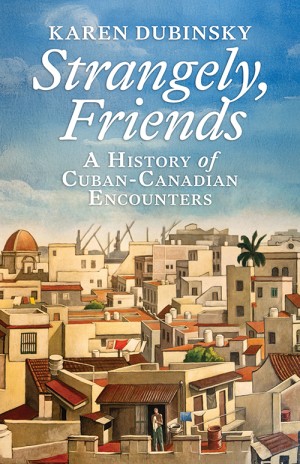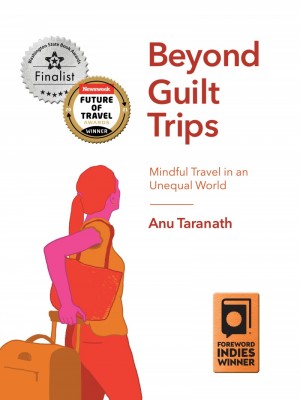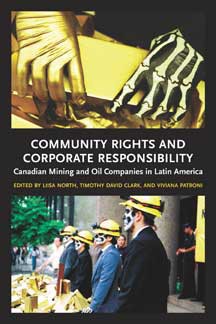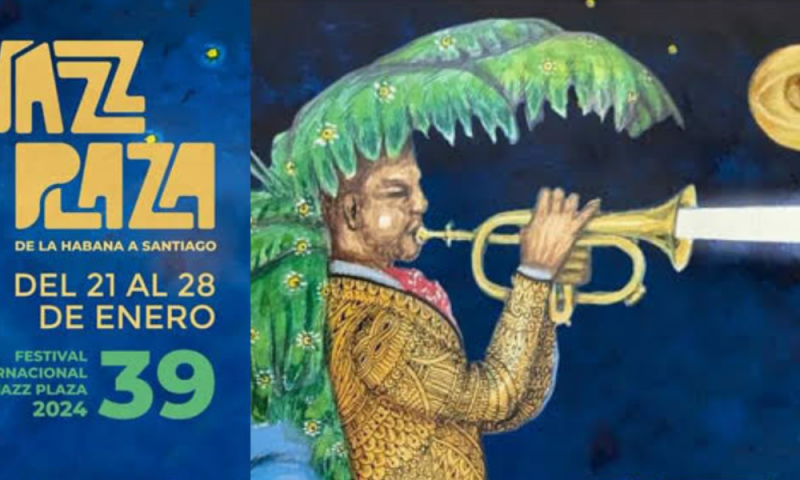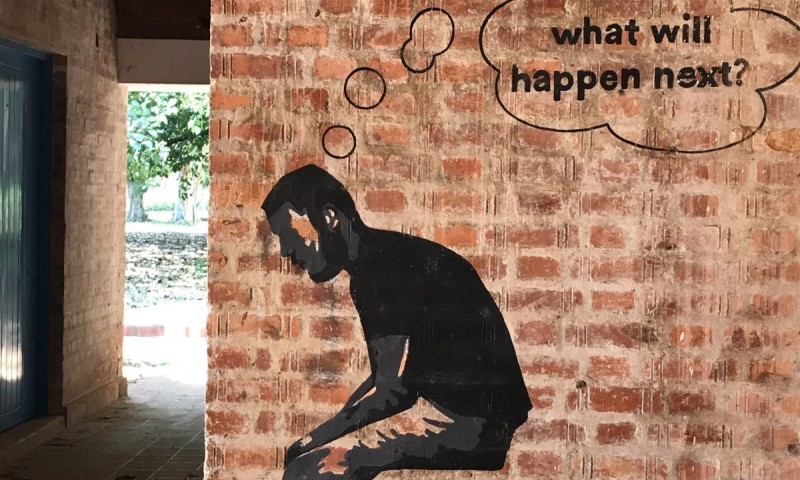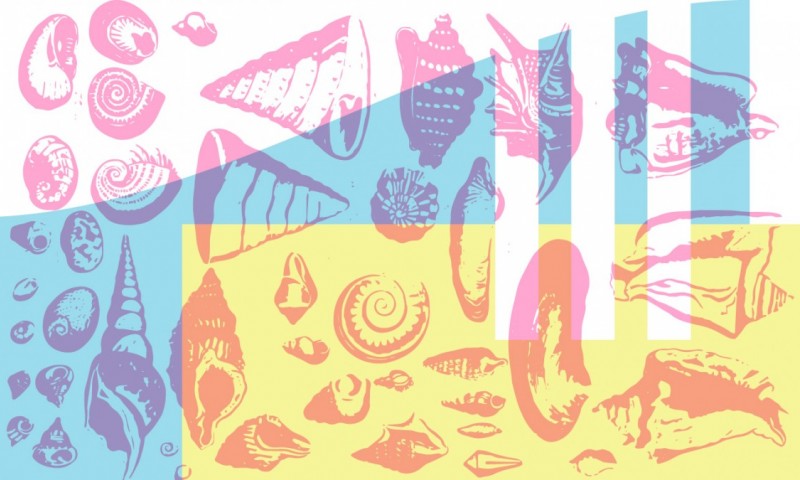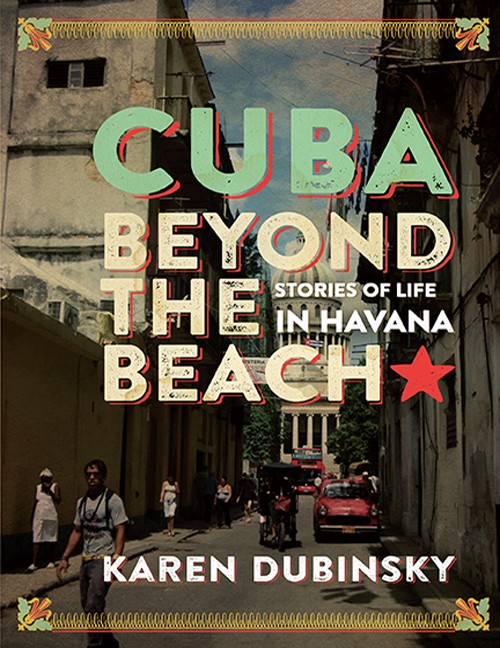
Cuba beyond the Beach
Stories of Life in Havana
Havana is Cuba’s soul: a mix of Third World, First World, and Other World. After over a decade of visits as a teacher, researcher, and friend, Karen Dubinsky looks past political slogans and tourist postcards to the streets, neighbourhoods, and personalities of a complicated and contradictory city. Her affectionate, humorous vignettes illustrate how Havana’s residents—old Communist ladies, their sceptical offspring, musicians, underground vendors, entrepreneurial landlords, and poverty-stricken professors—go about their daily lives.
As Cuba undergoes dramatic change, there is much to appreciate, and learn from, in the unlikely world Cubans have collectively built for themselves.
A portion of the proceeds from the sale of this book will go to the Queen’s University Student Overseas Travel Fund—The Sonia Enjamio Fund, which funds Cuban/Canadian student exchange.
Praise
With a trained eye for the devil in the details and a lover’s enthusiasm for the music, Karen Dubinsky distills memory and research into an up-to-date, insider-outsider portrait of this exceptional place. She sketches out a wealth of details that capture the surrealism of daily life in Cuba and will inform tomorrow’s historians. Cuba beyond the Beach rings true and reads fast.
– Ned Sublette, author of Cuba and Its Music: From the First Drums to the Mambo
In Cuba beyond the Beach Karen Dubinsky has captured the ethos of Cuba and Cubans. This work is a tour de force.
– Dr. Althea Prince, sociologist, author of Being Black and The Politics of Black Women’s Hair
Karen Dubinsky’s book is entertaining, educating, anecdotal and a pleasure to pick up and read. She gets the Cuban psyche head on. She knows so much about Cuba yet understands that the more you think you understand Cuba, the less you really know. This is an ultimate travel preparatory book. As practically a Havana resident, I still learned and revelled on shared experiences.
– Judy Gallant Co-Owner P&G Travel Toronto and Havana
This is an intimate portrait of Havana, enriched by Dubinsky’s personal anecdotes and stories of her Cuban friends. It chronicles the resourcefulness and resilience of the Cuban people and will appeal broadly to anyone traveling to Cuba or readers who just want to be transported there.
– Publishers Weekly
By cutting away at the debilitating romance, clichés, and dense propaganda that often characterizes narratives about Cuba, this wonderfully rich book provides the reader with a rare glimpse into a Cuba that continues to capture our imaginations, even as we somewhat nervously witness its dramatic history unfold.
– David Austin, author of Fear of a Black Nation
Karen Dubinsky’s portraits of life in Cuba are indeed beyond the beach and other worn caricatures. Her observations provide an immensely satisfying read and still whet the appetite for more. From the first chapter, she brings the reader into an encounter with Cuba that is fascinating, intriguing, and pulsing with the beauty of life in all its complexity.
– Molly Kane, Researcher in Residence, UQAM -CIRDIS
Cuba beyond the Beach is the perfect introduction to Cuba for travellers truly interested in seeing the island beyond the beach and beyond the clichés. Even those who have visited before will learn more about the history and present of the fascinating, vibrant, and perplexing city that is Havana.
– Hope Bastian, American University
Cuba beyond the Beach is one of those books that should be devoured by everyone interested in that mysterious island, and anyone else who simply enjoys a great read.
– Margaret Randall, author of Che on My Mind and Only the Road/Solo El Camino: Eight Decades of Cuban Poetry
Dubinsky’s realistic sense of humour lets her see a Havana that re-evolutionizes, re-invents, and re-circulates everyone in the underground studio of our daily life.
– Telmary, Hip-hop artist, singer, spoken word poet, Havana
Cuba beyond the Beach goes beyond boundaries: it’s a carefully composed mixture of travel book, city memoir, and stimulating reflections on a changing Cuba. Dubinsky succeeds in weaving together her astute observations on daily life in Havana with insights from Cuban studies, politics, and culture. This blend succeeds in explaining the bizarre realities of a complicated country in a refreshing way. By bringing Cuban approaches to social problems, such as crime, income inequality, and housing, into dialogue with outside solutions Dubinsky puts things into perspective and evades the all-too-common praise or vilification of socialist Cuba. She shows us that Cuba is neither socialist utopia nor communist hell, but an incubator for ingenuity. I recommend this book to anyone who seeks to better understand this awfully charming country and its people— and actually learn something from them.
– Rainer Schultz, Harvard University, Director of the Consortium for Advanced Studies Abroad, Cuba-Division, in Havana
Contents
| Acknowledgements | |
| Introduction | More than a Beach, More than a Revolution |
| Cubans, Canadians, and Americans: A Peculiar Triangle | |
| Telling “The Truth” about Cuba | |
| A City of Stories | |
| Part One | Gente de Zona–The People in the Neighbourhood |
| A Country of Old Ladies | |
| “There’s a Beer at the Hospital, but Where Did You Get Those Eggs?” Our Daily Bread | |
| Bicycles and Beautiful Cakes | |
| Pánfilo: The Jama Jama Guy as Cold War Superstar | |
| Pregoneros: The Musical Theatre of the Street | |
| Cerro and My Gay Trade Union | |
| Women, Men, and the Everyday Battles of the Street | |
| The Futuros Communistas Daycare Centre and Other Anomolies of Cuban Childhood | |
| Part Two | Those Who Dream with their Ears: The Sound of Havana |
| Walking out into the Night Music: Random Horns and Everyday Reggaetón | |
| How Cuban Music Made Me a Better Historian | |
| Interactivo and El Brecht on Wednesdays | |
| Mourning Santiago | |
| “Music is my Weapon” Telmary Díaz and Rochy Ameneiro: Two Powerful Women of Sound | |
| The Fábrica de Arte Cubano | |
| Part Three | La Nueva Cuba: Life in the New Economy |
| Chopped Vegetables, Restaurants, and Other Signs of a Middle Class | |
| Technological Disobedience and the Entrepreneurship of the Poor | |
| Real Estate as Magic Realism | |
| Taxi! Why I Don’t Talk in Cuban Taxis | |
| The Havana You Don’t Know–Street Crime, Corruption, and Sociolismo | |
| A Few Stories about Garbage | |
| Part Four | Cubans in the World, The World in Cuba |
| Life Without the Internet | |
| The Drama of the Suitcases: How to Smuggle a Salmon into Havana | |
| Taking Cubans to Costco | |
| The Thermometer that Struck up a Beautiful Friendship | |
| Looking for the Enemy in Manhattan: How My Friend Emilia Ended the Cold War | |
| Conclusion | Todo Será Distinto? Our Uncertain Futures |
| Notes | |
| Index |

